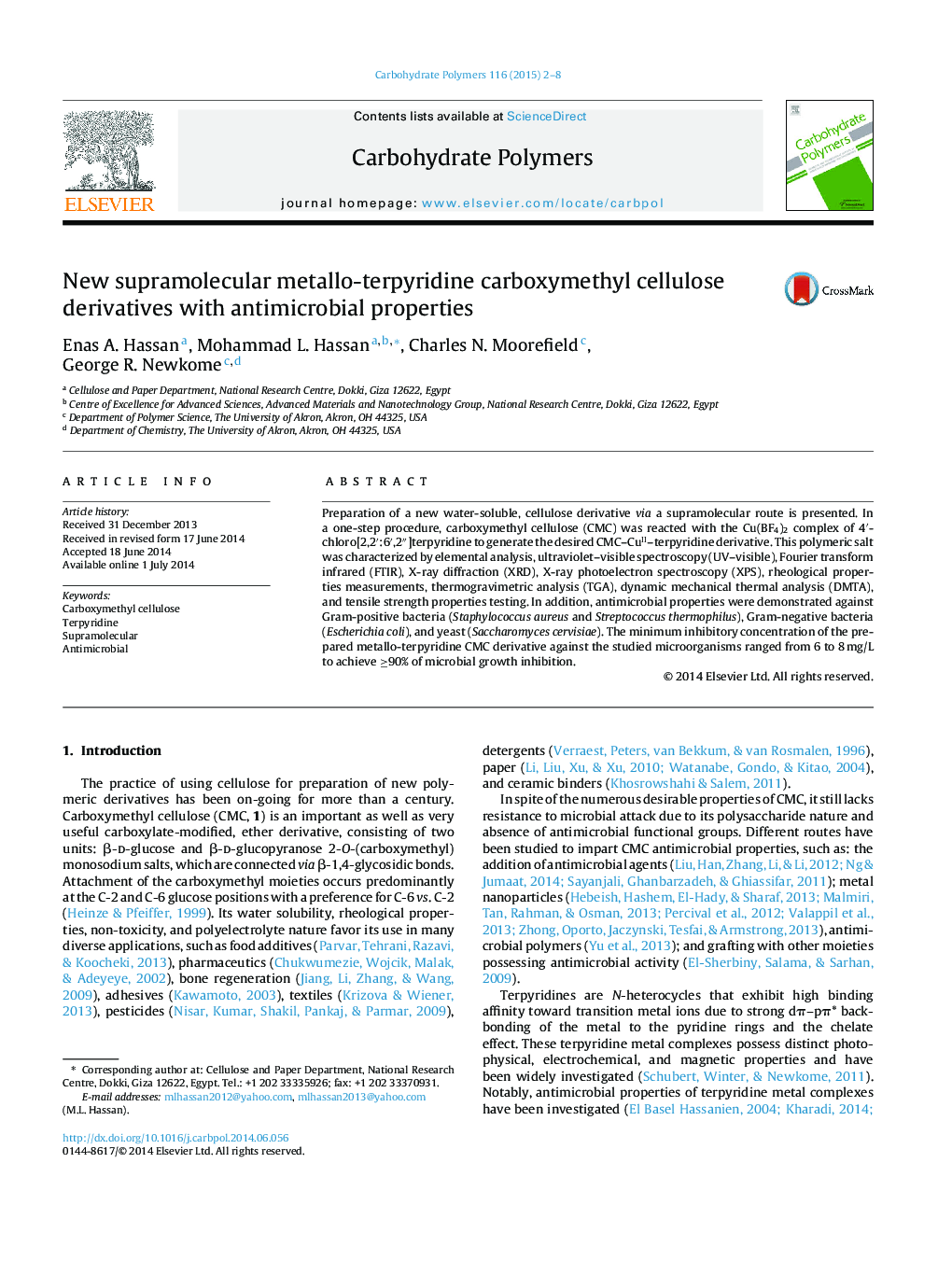| Article ID | Journal | Published Year | Pages | File Type |
|---|---|---|---|---|
| 1385659 | Carbohydrate Polymers | 2015 | 7 Pages |
•New water soluble supramolecular cellulose derivative was prepared.•Carboxymethyl cellulose was reacted with CuII–terpyridine complex.•The prepared CMC–CuII–terpyridine derivative has antibacterial properties.
Preparation of a new water-soluble, cellulose derivative via a supramolecular route is presented. In a one-step procedure, carboxymethyl cellulose (CMC) was reacted with the Cu(BF4)2 complex of 4′-chloro[2,2′:6′,2″]terpyridine to generate the desired CMC–CuII–terpyridine derivative. This polymeric salt was characterized by elemental analysis, ultraviolet–visible spectroscopy (UV–visible), Fourier transform infrared (FTIR), X-ray diffraction (XRD), X-ray photoelectron spectroscopy (XPS), rheological properties measurements, thermogravimetric analysis (TGA), dynamic mechanical thermal analysis (DMTA), and tensile strength properties testing. In addition, antimicrobial properties were demonstrated against Gram-positive bacteria (Staphylococcus aureus and Streptococcus thermophilus), Gram-negative bacteria (Escherichia coli), and yeast (Saccharomyces cervisiae). The minimum inhibitory concentration of the prepared metallo-terpyridine CMC derivative against the studied microorganisms ranged from 6 to 8 mg/L to achieve ≥90% of microbial growth inhibition.
